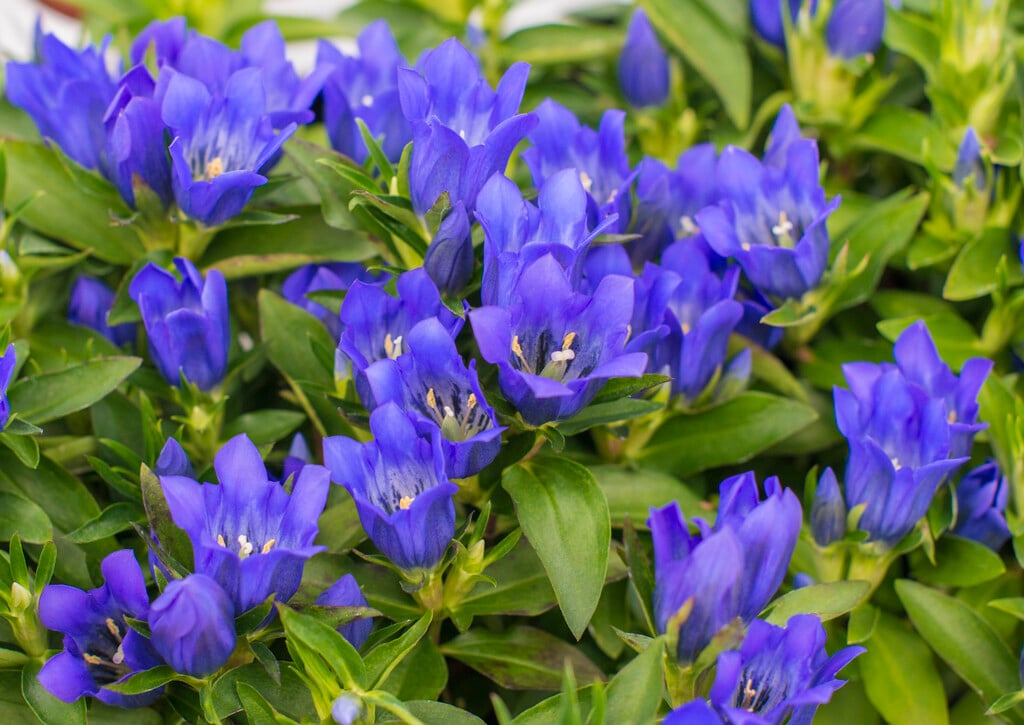Gentiana scabra
A variable, clump-forming perennial, 30-60cm high, with oval-shaped leaves edged with rough hairs. Upright stems bear smaller, narrower leaves and violet-blue bell- or funnel-shaped flowers, singly or in small clusters, that are paler in the throat and sometimes have yellow-green speckles. Flowers can be produced from late spring well into autumn

Size
Ultimate height
0.5–1 metresTime to ultimate height
2–5 yearsUltimate spread
0.1–0.5 metresGrowing conditions
Moisture
Moist but well–drainedpH
Acid, NeutralColour & scent
| Stem | Flower | Foliage | Fruit | |
| Spring | Blue Purple | Green | ||
|---|---|---|---|---|
| Summer | Blue Purple | Green | ||
| Autumn | Blue Purple | Green | ||
| Winter | Green |
Position
- Full sun
- Partial shade
Aspect
East–facing or South–facing or West–facing
Exposure
Exposed or Sheltered Hardiness
H5Botanical details
- Family
- Gentianaceae
- Native to GB / Ireland
- No
- Foliage
- Semi evergreen
- Habit
- Clump forming
- Genus
Gentiana can be annuals, biennials, herbaceous or evergreen perennials, mostly with showy, trumpet or salver-shaped flowers
- Name status
Correct
- Plant range
- E Asia
How to grow
Cultivation
Grow in reliably moist but well-drained, humus-rich, acid or neutral soil, will not tolerate drought or waterlogging. Thrives in locations with cool, damp summers, where it is best positioned in full sun; in areas with hot, dry summers these plants are best grown in afternoon shade
Propagation
Propagate by seed or by division in spring
Suggested planting locations and garden types
- Cottage and informal garden
- Gravel garden
- Patio and container plants
- Rock garden
Pruning
No pruning required
Pests
Generally pest-free
Diseases
Generally disease-free
Get involved
The Royal Horticultural Society is the UK’s leading gardening charity. We aim to enrich everyone’s life through plants, and make the UK a greener and more beautiful place.